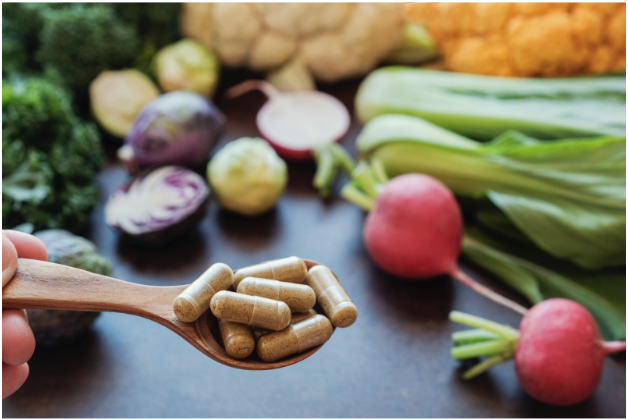
The health of the gut barrier is fundamental to overall wellness, serving critical functions in nutrient absorption and immune defense. Damage to this barrier can lead to increased intestinal permeability, commonly known as “leaky gut,” which can trigger a range of gastrointestinal and systemic health issues. Effective nutritional and botanical strategies can help repair this crucial barrier, strengthening the body’s natural defenses and reducing inflammation.
Detailed Examination of the Gut Barrier and Its Key Defenders
The gut barrier consists of a single layer of epithelial cells that forms a robust boundary between the gut lumen and the rest of the body. Tight junctions between these cells prevent the passage of harmful substances. When these junctions are compromised, due to factors like inflammation or injury, toxins and pathogens can leak into the bloodstream, potentially leading to various health conditions.
1. Strengthening Tight Junctions with Vitamin D
Vitamin D is essential not just for bone health but also for its critical role in maintaining the integrity of the gut barrier. It influences the gut barrier by activating Vitamin D receptors (VDRs) that enhance the structure and function of tight junctions. These receptors help maintain the barrier against potential invaders and prevent the systemic spread of inflammation. Vitamin D’s role in gut health is also pivotal because it helps modulate the immune system’s response, reducing the risk of autoimmune reactions where the body mistakenly attacks its own tissues.
2. Glutamine: A Building Block for Gut Repair
Glutamine serves as a vital nutrient for the gut’s epithelial cells, promoting their growth and function. It is especially important in times of stress or inflammation when the demand for rapid repair and regeneration of the gut lining increases. Glutamine aids in maintaining the seal between cells (tight junctions), which prevents the leaky gut syndrome. Additionally, this amino acid supports a healthy immune function and increases antioxidant protection, which is crucial for mitigating the effects of oxidative stress on the gut lining.
3. The Anti-inflammatory Power of Chinese Skullcap
Chinese skullcap (Scutellaria baicalensis) is highly regarded in traditional Chinese medicine for its ability to fight inflammation and support immune health. Its primary active compound, baicalin, targets the NF-κB pathway, a major cellular pathway involved in inflammation and immune response regulation. By inhibiting this pathway, Chinese skullcap helps to decrease inflammation throughout the body, including in the gut. This herb’s antioxidant properties also help protect the gut from oxidative damage, promoting the healing of tissue and further supporting barrier integrity.
4. Propolis and Its Protective Effects
Propolis, a natural resin produced by bees from tree buds, is rich in flavonoids and other bioactive compounds. It has a broad spectrum of therapeutic properties, including antimicrobial, antiviral, and anti-inflammatory effects. One of the key components of propolis, Caffeic acid phenethyl ester (CAPE), is particularly effective in blocking inflammatory pathways and inhibiting enzymes that promote inflammation. This makes propolis a valuable supplement for protecting the gut barrier and maintaining a healthy immune response.
Integrating Nutritional and Botanical Strategies for Gut Health

To optimize gut barrier function and reduce inflammation effectively, a multifaceted approach is recommended. This includes:
- Regular Vitamin D supplementation: Ensuring adequate Vitamin D levels is crucial for the structural and functional integrity of the gut barrier.
- Dietary inclusion of glutamine: Incorporating glutamine-rich foods like bone broth and certain meats, or using supplements can help maintain the gut lining.
- Utilizing Chinese skullcap: Integrating this herb into a health regimen can support anti-inflammatory efforts and help manage immune responses more effectively.
- Incorporating propolis into the diet: Using propolis supplements can enhance gut health and provide broad-spectrum protective effects against inflammation and infection.
By adopting these strategies, patients can significantly improve their gut health, which in turn supports their overall health and well-being. These interventions not only repair and strengthen the gut barrier but also help modulate the immune system, reduce inflammation, and support the body’s natural healing processes. This comprehensive approach is essential for maintaining long-term gastrointestinal health and preventing the development of chronic health issues.


